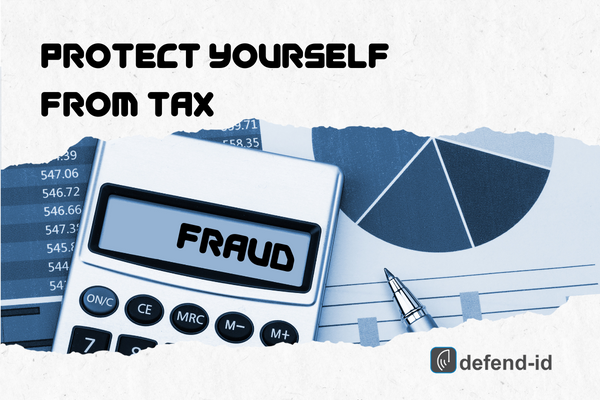Tax identity theft is a type of identity theft that occurs when someone uses your personal information to file a fraudulent tax return and claim a refund. It can have serious consequences, including delays in receiving legitimate refunds, penalties for underpayment, and damage to your credit score. In this article, we’ll explain how tax identity theft occurs, how to spot the warning signs, and what you can do to protect yourself from Tax Fraud
How Tax Identity Theft Occurs
Tax identity theft can occur in a number of ways. For example:
- Phishing scams: Scammers request personal information such as Social Security numbers or bank account details through emails or phone calls that appear to be from the IRS.
- Data breaches: Hackers steal personal information from large companies or government agencies and sell it on the black market for tax identity theft purposes.
- Stolen mail: Criminals steal mail that contains personal information, such as tax documents like W-2 forms or 1099s.
- Social engineering: Scammers use social engineering tactics, like creating fake job postings or fake charity organizations, to trick people into revealing personal information.
Warning Signs of Tax Identity Theft
According to the IRS, some of the warning signs of tax identity theft include:
- The IRS sends a letter stating multiple tax returns were filed or unknown wages were received.
- You can’t file an electronic tax return because someone filed with your Social Security number.
- A tax transcript arrives in the mail, despite not requesting it.
- You get an IRS notice that someone opened an online account in your name.
- You receive an unexpected refund or an incorrect refund amount.
- You receive a tax bill for taxes you didn’t owe.
How to Protect Yourself from Tax Fraud
There are several things you can do to protect yourself from tax identity theft:
- Safeguard personal information: Only provide personal details to trusted individuals or organizations. Beware of unsolicited phone calls or emails requesting such information.
- File taxes early: Early filing reduces the risk of a fraudster filing a return in your name.
- Check credit report regularly: Regularly checking your credit report helps you spot unusual activity like unauthorized new accounts or loans.
With defend-id Coverage, Protect Yourself from Tax Fraud
At defend-id, we understand the importance of protecting your identity and your finances from tax fraud. That’s why we offer fully managed recovery programs to help you recover from the effects of identity theft. Our team of experts will work with you to restore your credit, recover lost funds, and ensure that your identity is fully restored. Learn more about our fully managed recovery programs here: What’s Fully Managed Recovery for Identity Fraud
Tax identity theft is a serious threat that can cause financial hardship and personal stress. Protect yourself by being vigilant with personal information, filing taxes early, and checking your credit report regularly. If you do become a victim, Defend-ID’s fully managed recovery program can help restore your identity. Learn more about the program on our blog. Stay safe and secure!
Don’t let tax identity theft damage your finances and your credit. Take steps to Protect Yourself from Tax Fraud, and consider defend-id’s fully managed recovery programs to give you peace of mind.
Learn more: Protect employees from tax fraud. Peace of Mind with a Place to Turn is a great benefit your employees will appreciate.
Related articles: Early Tax Filing Helps Prevent Tax-Related Identity Theft
